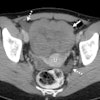The Supreme Court has overturned a lower court decision that had ramifications on no-cost preventive health services, including breast and lung cancer screening.
The court issued its ruling on June 27 in the case of Kennedy v. Braidwood Management in a 6-3 vote, saying that the U.S. Preventive Services Task Force (USPTSF) consists of inferior officers, meaning their appointment was constitutional under the Appointments Clause.
This overrides a U.S. Court of Appeals for the 5th Circuit decision in 2024, which ruled that the structure of the U.S. Preventive Services Task Force (USPSTF) violates the U.S. Constitution's appointments clause. The 5th Circuit also declined to end the statutory provision that shields the USPSTF from the U.S. Health & Human Services secretary’s supervision.
The USPSTF consists of an independent panel of health experts in primary care and prevention. It makes evidence-based recommendations about preventive services. Under the Affordable Care Act, private plans and Medicaid expansion programs must cover preventive health services based on those receiving an A or B level recommendation by the task force.
"We conclude that Task Force members are inferior officers because their work is 'directed and supervised' by the Secretary of HHS [Department of Health and Human Services], a principal officer," according to a majority opinion authored by Justice Brett Kavanaugh.
Imaging advocates have voiced opposition to the 5th Circuit’s decision, saying it would threaten access to preventive care by adding costs that may prevent people from receiving their appropriate screening.
“This decision is a monumental win for public health and a critical safeguard for the 150 million Americans who depend on no-cost preventive care,” according to a statement by Susan G. Komen, who previously submitted an amicus curiae brief for the case. “Access to screening mammograms, genetic testing, and risk-reducing medications saves lives. Today, the Court affirmed that everyone deserves a fair chance at early detection and preventive care.”
Stamatia Destounis, MD, said the Court's decision is encouraging. Destounis serves as chair of the American College of Radiology (ACR)'s Commission on Breast Imaging and as chair of the RSNA's Public Information Committee
"This decision reinforces the importance of early detection and ensures millions of Americans can continue to receive no-cost screening services that save lives, reduce long-term healthcare costs, and promote a healthier, more equitable future for all," she told AuntMinnie.
And Dana Smetherman, MD, the ACR's CEO, said the decision is "a positive step sought by both Republican and Democrat administrations."
“It protects full insurance coverage, with no copay, of many cancer screening exams and other preventive care," Smetherman stated to AuntMinnie. "The ACR applauds the decision and will continue to promote policies that support greater access to lifesaving care.”
The Society of Breast Imaging (SBI) meanwhile also applauded the ruling, saying that if the Court decided to rule in favor of Braidwood, cost burdens would have been imposed for preventive health services such as mammograms, cervical cancer screening, colonoscopies, statin therapy for heart disease, and HIV-prevention medications among others.
"Such financial barriers would exacerbate health disparities by discouraging preventive services among cost-conscious individuals. While the SBI has disagreed with details of the USPSTF's breast cancer screening recommendations in the past, the SBI supports the overall mission of the USPSTF in promoting preventive services," said Vilert Loving, MD, chair of the SBI Communications and Advocacy Task Force. "Further, the SBI supports health equity and reducing the burden of breast cancer for all people. Therefore, the SBI applauds the Supreme Court for preserving no cost access to screening mammography and other life-saving preventive services."




















